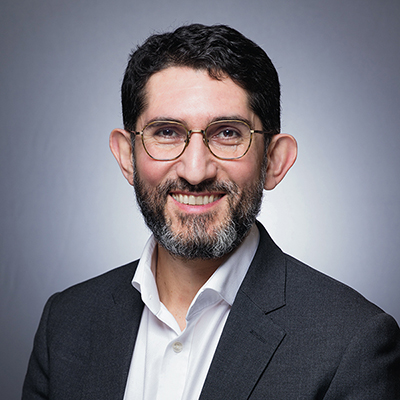

I'm an orthopaedic surgeon at The London Clinic and my area of interest is the foot and ankle, and a discipline of orthopedics called limb reconstruction. My experience includes setting up the foot and ankle unit at the Royal London Hospital. I also have a great interest in teaching – I've been chairing the AO advanced foot course in the UK and also the AO Masters course in Davos for the past few years.
Limb reconstruction is a discipline in which you deal with complications as a result of previous orthopaedic treatment or injury. Complications that can occur include deformities, failure of fracture fixation, deep infection and soft tissue loss.
Diabetes is a very complex condition that affects almost all organs of the body. Patients can have problems with their eyes, their kidneys and they can suffer early narrowing of the arteries
that can cause problems with the heart. It can be an antecedent to having strokes, and it can reduce blood supply to the foot, ankle and the lower part of the leg. Diabetes patients are also more prone to fractures, which are much slower to heal than normal. Skin wounds also take time to heal because of the lack of blood supply, increasing the risk of infection.
Diabetes also affects the nerves, meaning you can then lose what is described as ‘the gift of pain’, because pain is protective. In the absence of that protective mechanism, injuries can mount up in the foot and long-term consequences can result. For example, the foot may start changing shape, such that skin in areas that are not used to bearing load ulcerate. Such infections can go to the bone and become complicated. Of the diabetes patients that have had a major amputation, the vast majority have had an antecedent event such as a small ulcer.
If diabetic patients are unable to exercise then controlling their condition may become more difficult. Therefore, preservation of the limb is extremely important for the long-term health, and that is essentially the aim of the treatment of diabetic foot problems.
We take a multidisciplinary approach to care, meaning that it is not just an orthopaedic surgeon like me who is involved. From the outset, our team includes a diabetologist to optimise sugar control, which is a critical starting point for treatment. As the vast majority of patients experience kidney problems, a nephrologist (kidney specialist) is also involved. Vascular surgeons are important for performing procedures to improve the blood supply to the foot.
Constant communication and coordination are really important on the nursing side, particularly in dealing with wounds. We discuss the best treatment strategy for diabetic infections with microbiologists.
After patients have had their surgery, they invariably require a short period of time in intensive care. At The London Clinic, we have a phenomenally well-organised intensive care unit, run by intensivists who also work at University College London Hospital.
The coordination of this level of care is quite complex, and in the private sector there are few places with the environment to enable this. Without the input of my colleagues, it would be impossible to look after such patients. In private practice, I don't know any other hospital that looks after such patients as we do at The London Clinic.
Many patients come to us from the Middle East, where they may have already received some treatment. However, finding consultants and surgeons with the necessary
experience or interest in diabetic limb preservation is rare, so patients usually haven’t received expert care before they visit us.
For our international patients, the medical treatment is only part of the story. The London Clinic has a wonderful international team to help patients navigate the complexities of their treatment while being away from home, including language assistance and consideration of cultural differences. Their valuable assistance ensures a smooth experience for both our patients and our medical team.